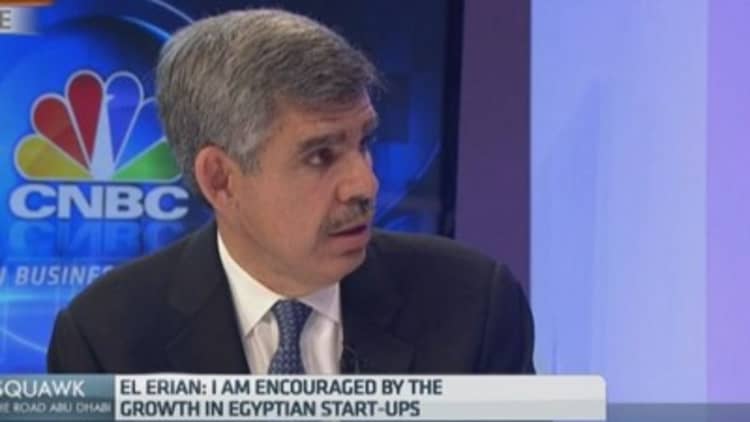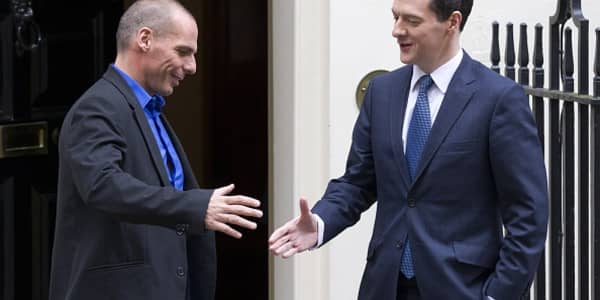
Global investors are waiting with bated breath this month, as an expected 60 billion euros ($67 billion) is set to flood the euro zone's economy, in a move which has already caused record inflows into stock markets and severe distortions in fixed income.
The European Central Bank (ECB) plans to expand its balance sheet by as much as a trillion euros in total in an effort to combat the current environment of low growth and deflation – when consumer prices fall instead of rise. A spokesman for the central bank told CNBC Monday that there was no formal start date for the bond-buying – also known as quantitative easing (QE) – program, but that it was expected to start sometime in March.
Mohamed El-Erian, chief economic adviser at Allianz, said he believes the central bank might even look to expand the program further.
"I suspect over that next year we're going to see this QE evolve. We're going to see a bigger set of instruments being bought by the ECB as it continues, unfortunately, to be the only game in town," he told CNBC at the Global Financial Markets Forum in Abu Dhabi.
Distorted bonds
The anticipation of ECB bond-buying – which will include both private and public debt – has sent markets into something of a frenzy.
Germany's five-year government bonds were being auctioned with a negative yield last week for the first time in its history. While corporate bonds from companies such as Nestle have also been sold with negative interest rates, as some investors seem willing to take a short-term hit for a perceived "safe-haven" investment.
Not everyone is convinced, however, with a number of heavy-weight investors looking for yield elsewhere. Allianz said last week that it was raising its investment in real estate, infrastructure and renewable energy by 30 billion euros, hoping to "avoid the impact of the artificially low interest rates."
Meanwhile, Mark Cutis, chief investment officer of the Abu Dhabi Investment Council, told a CNBC-hosted panel on Monday that he would not "be long" on German bunds with a negative yield, and spoke of the attractiveness of Japanese equities.
Record fund flows

It's a different story on the continent's stock markets, however, which have experienced their best start to the year since regional benchmarks began in late 1986, according to Reuters. U.S.-focused research tracker TrimTabs said Sunday that investors have been "shoveling record sums" into European equities this year, while shunning their U.S. counterparts.
"I don't think it's too late," Sheila Patel, CEO of Goldman Sachs Asset Management International, told CNBC Monday, when asked about investing in European stock markets. She urged that a "selective approach" was important and said that QE by the ECB would finally ensure that small and mid-cap stocks – not just super-sized corporates – would get a boost.
Other investors also look to be recognizing the virtues of European investments, with Warren Buffett recently buying a German motorcycle accessories retailer. El-Erian, too, said that short-term investors should look to move out of the U.S. and into Europe as there is "still room to go."
Meanwhile, Hargreaves Lansdown has launched a new multi-manager European fund amid this "supportive background." Senior analyst Laith Khalaf told CNBC via email that U.K. stock markets looked attractive with an average yield of around 3 percent, but only if "you can stomach the volatility."
ECB President Mario Draghi announced the central bank's open-ended bond-buying program back in January and will be back in the hot seat on Thursday when the ECB's Governing Council reveals its latest monetary policy decision.
It comes against a backdrop of good economic news for the euro zone, with the region's money supply growing more than expected in January, according to data last week, and the unemployment rate and the inflation rate both beating market expectations on Monday morning.





